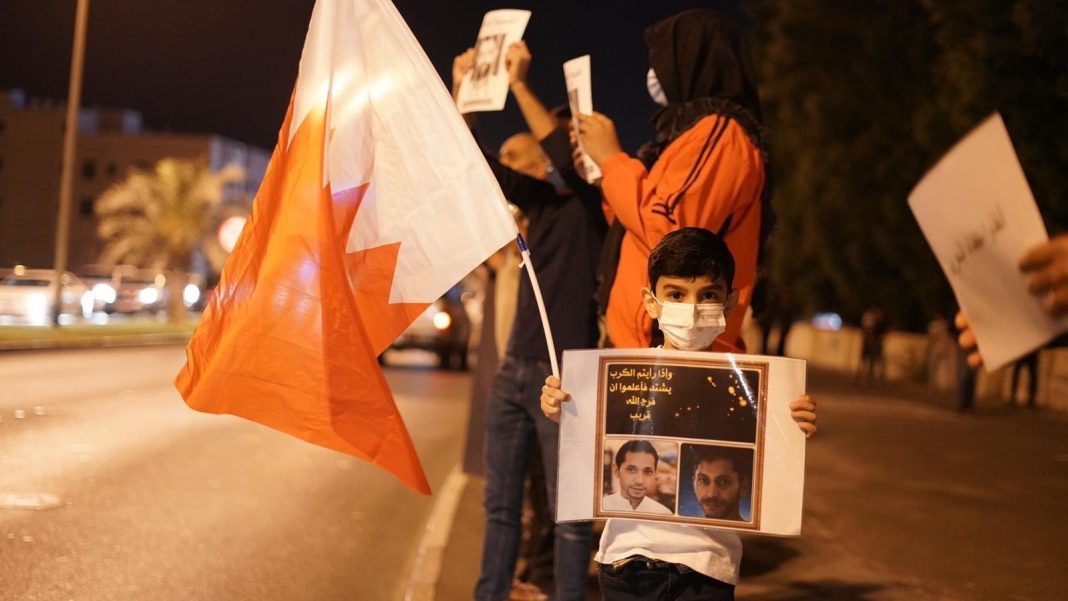The men were among more than 60 prisoners abused and held incommunicado for more than a month after security forces and prison officers broke up the April 2021 sit-in in Jau Prison, according to accounts documented by the UK-based Bahrain Institute for Rights and Democracy (BIRD).
Middle East Eye has seen copies of notes made by Bahrain’s Public Prosecution Office after interviews with three prisoners following the protest, detailing abuse including being struck repeatedly in the head with metal objects and held for days in handcuffs.
Prison officials involved in the alleged abuse have not been investigated, while the trial of 65 prisoners was “marred with severe due process violations”, according to BIRD.
“This mass trial demonstrates a core problem in Bahrain’s corrupt judicial system, where prisoners of state violence and victims of torture are condemned while torturers avoid any accountability,” said Sayed Alwadaei, BIRD’s advocacy director.
The court has sentenced 12 political prisoners to three years in prison, one to one year and a 50 Bahraini dinar ($132 USD) fine, and acquitted 52 others on charges including causing unrest and resisting prison police orders.
None of the defendants were present for the proceedings.
The sentencing comes weeks after prisoners suspended a mass, 36-day hunger strike, the largest such strike in Bahrain’s history, over conditions in Jau Prison after Bahraini authorities pledged improvements.
Alwadaei told MEE that there have been “some concessions” since the end of the strike, including the release of some political prisoners from solitary confinement.
“It’s a mixed message,” he said of reports from prisoners inside.
He stated there are ongoing meetings between prisoners, prison officers and National Institute for Human Rights’ representatives to discuss the prisoners’ demands. There is potential, he added, that the hunger strike could resume.
The 10-day sit-in in April 2021 erupted after the death of political prisoner Abbas Mallallah, whom prisoners said had been denied timely access to healthcare, and as rights groups said authorities were failing to prevent the spread of Covid-19.
According to reports and the accounts detailed to the Office of Public Prosecution, the protest was broken up by riot police who threw stun grenades and beat detainees, many of whom were badly injured. The UN High Commission for Human Rights said it was “disturbed by the use of unnecessary and disproportionate force” at what it described as “a peaceful sit-in”.
In all three accounts seen by MEE, prisoners said that they had been beaten by the same police officer, Ahmed Farhan. One prisoner said Farhan told him “I will crush them, I will crush all the Shia”, and tried to put a shoe inside his mouth.
Bahraini authorities have previously announced that the demonstration was violent and that prison officials took proportionate measures to protect staff and inmates. They also said that detainees were moved to new facilities after the crackdown, but did not explain why they were not in contact with their families.
